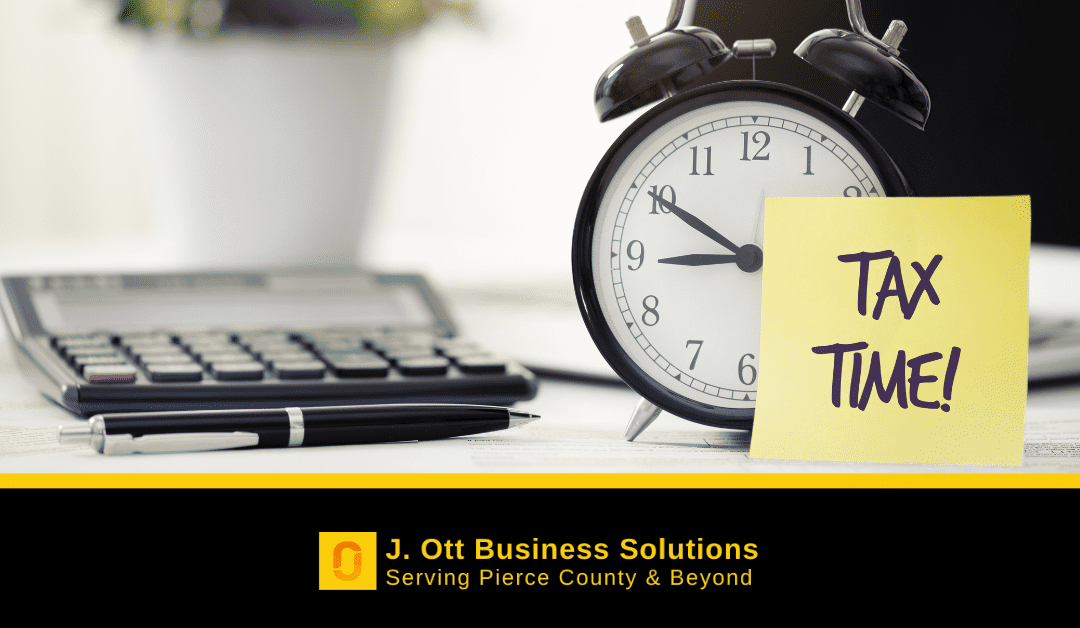As the end of the year approaches, small businesses are gearing up for the inevitable—tax season. While taxes may not be the most thrilling aspect of entrepreneurship, they are crucial to running a successful business.
In this blog post, we’ll explore proactive strategies to help small businesses prepare for tax season efficiently, maximize deductions, and stay compliant with the latest tax regulations.
- Start Early, Stay Organized
Procrastination is a common pitfall during tax season. To counteract this, set a deadline for gathering all necessary documents and review your financial records. Create a digital or physical system to organize and store all relevant paperwork. Starting early reduces stress and allows for a more thorough review of potential deductions.
Action Step: Schedule dedicated time on your calendar to begin collecting and organizing your financial documents. Create folders or digital files for each category, ensuring you have a centralized location for all necessary paperwork.
- Understand Changes in Tax Regulations
Tax laws are dynamic, and staying informed is crucial. Regularly check for updates or revisions in tax regulations that may impact your business. Consider subscribing to relevant newsletters or joining industry forums to stay in the loop. Consulting with a tax professional can provide additional insights into the latest changes.
Action Step: Allocate time each month to review tax-related updates and articles. Create a system for organizing this information, ensuring you have a comprehensive understanding of any changes that may affect your business.
Don’t have time? Make sure you hire a reputable accounting professional who will do this for you!
- Maximize Deductions with Strategic Planning
Identifying and maximizing deductions requires strategic planning. Begin by listing all potential business expenses and ensuring you have proper documentation. Tailor your strategic plan to your business structure, considering deductions specific to your industry or business type.
Action Step: Create a checklist of potential deductions relevant to your business. Regularly update this list and cross-reference it with your expenses to ensure that no deduction is overlooked during tax season.
Short on time? A tax and accounting professional can help you create a system to organize your relevant tax deductions.
- Leverage Technology for Tax Efficiency
Incorporating technology into your tax preparation process can save time and reduce errors. Explore accounting software and tools that automate tasks, track expenses, and generate financial reports. Choose tools that align with your business needs and are user-friendly.
Action Step: Research and select accounting software that fits your business requirements. Allocate time for training and implementation, ensuring a smooth transition to a more technology-driven and efficient tax preparation process.
Not sure where to start? Reach out to me; I am an expert in the most popular accounting software systems and can help you choose the best program for your needs.
- Get Professional Guidance
While small businesses often navigate taxes independently, seeking professional guidance can be invaluable. Identify a reputable tax professional (Hi, there! Contact me here.) who can offer personalized advice, interpret complex tax codes, and ensure compliance. Schedule a consultation to discuss your specific business circumstances.
Action Step: Schedule a consultation with me to discuss your business and gain insights into how professional guidance can benefit your specific tax situation.
- Plan for the Next Tax Year
As you navigate the current tax season, take proactive steps to plan for the next. Assess your financial strategies, consider adjustments based on the current year’s experience, and implement changes that could positively impact your tax position in the future.
Action Step: Dedicate time at the end of each tax season to evaluate what worked well and areas for improvement. Use this reflection to outline actionable steps for a more efficient and strategic approach in the upcoming tax year.
In conclusion, navigating tax season requires a proactive approach and strategic planning. By implementing these action steps alongside the provided strategies, small businesses can approach tax season with confidence and compliance, setting the stage for financial success.

